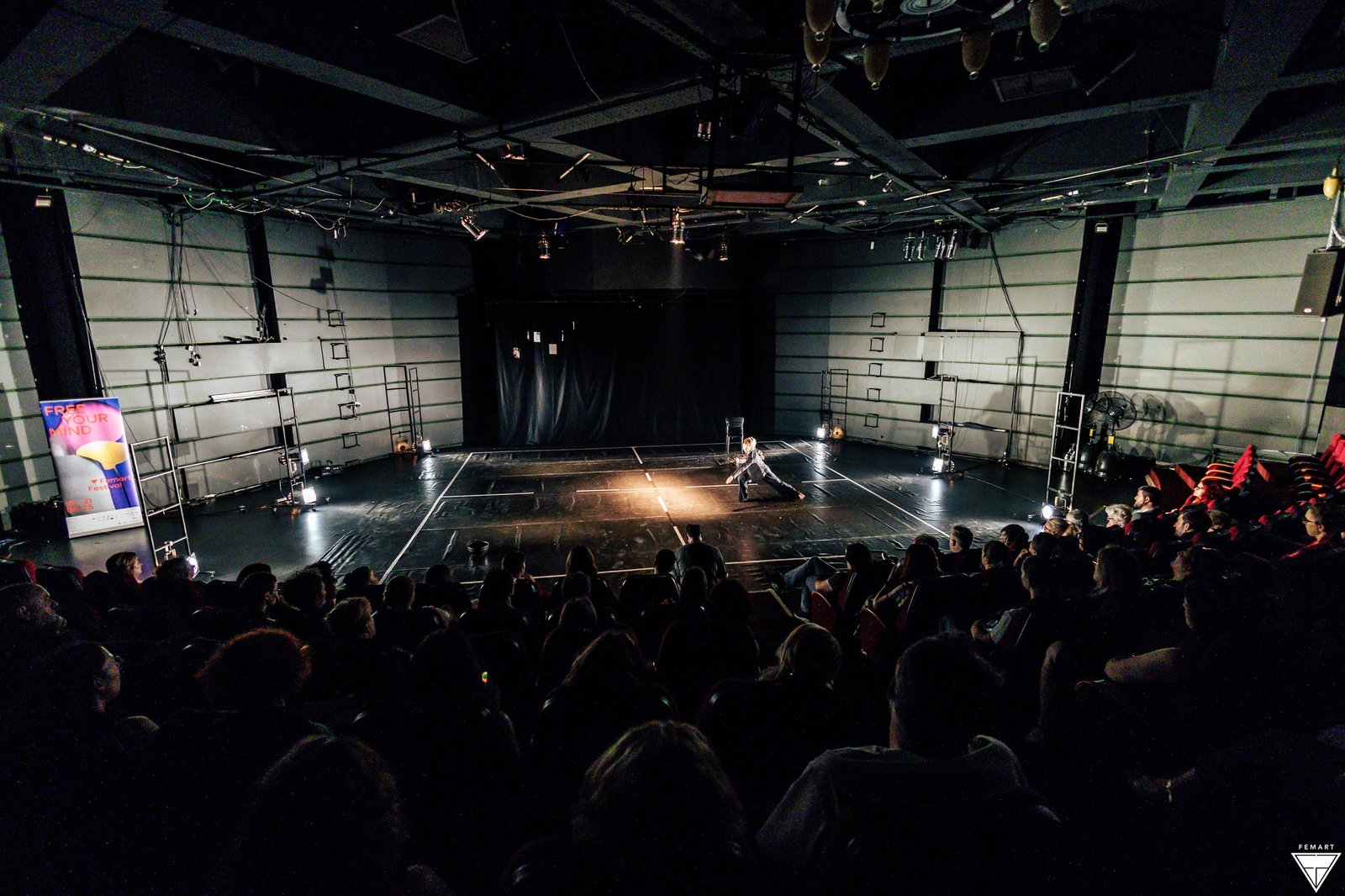By: Gili Hoxhaj
What happens when someone leaves and we are not ready to accept their departure? When we are forced to learn life all over again from the beginning—unprepared. We need time, movement, and within that time, many things happen—things we are not ready to live through, not even in the smallest measure. Rhiannon Morgan doesn’t hide the pain from us—she doesn’t spare us from it, even at the beginning. She opened the performance with a scream. A few steps forward, a few back. Just like the healing process—it makes progress and sometimes feels like you’re back at zero.
She moves with precision, almost military-like. The space she performs in is divided by white lines—four mental zones, each evoking a different emotional state. Each transition marks an entrance into a new dimension. This is how she begins to unravel AdH(A)rA, a dance theatre performance by the Luxembourg-based artist Rhiannon Morgan, which represents an intimate and universal confrontation with pain, loss, and self-identity. With her performance, the cultural program on the fourth evening of FemArt concluded under the motto “Free your Mind.”
As she moves into the next square, the intensity of her movements increases. Her pain becomes sharper. She is still not ready to accept her father’s absence. She struggles to accept the loneliness—the emptiness that loss leaves behind. The solitude that strikes and, suddenly, you no longer recognize yourself. She undresses and nearly chokes. But undressing doesn’t remove the inner pain. The music carries the sorrow she desperately fights—with body and soul.
In the next square, she begins to hit herself. Everything worsens. Everything becomes unbearable—before it gets better.
In the following square, she begins a delicate dance. The music enters like a prayer of hope. Slowly, she removes the upper part of her clothing. She tries to express something, but fails. “I wanted to express nothing,” she says. In her life, everything remains suspended. Still, she dances and feels free—as if somehow more liberated.
In the fourth square, she lies down completely. She begins to dress and eat. To return to daily life. She fills her mouth and tries to nourish herself. The music stops. Now the time belongs entirely to her. Only then does she begin to rise and express her emotions. To accept the loss, the departure. To take one step toward feeling whole and alone.
Why did I give you the power to destroy me? —is her question, one that redirects reflection inward. We are the ones who steer the course.
Every time I fall, I find the strength to rise again—it’s the light at the end of the tunnel, the one that finally opens your eyes.
AdH(A)rA is an invitation to share that moment—when grief allows us to rediscover our desire to live, to expand, to move forward.
It’s a call to gather, to feel, to share, to live, to expand, to move forward—together.
In Buddhist philosophy, “Adhara” refers to a metaphysical concept describing a Being who has accepted their multiplicities and transcended them.
To the tune of “Losing My Religion,” her path back to herself begins.
We’ve all walked through her squares. Life, in the end, is tied to the stages that ask questions and others that provide answers. Years when we find joy, get hurt, and then take time to heal. This is the mosaic of life. Slowly—but eventually—we learn to walk over it all, without fear. This was an invitation to offer forgiveness to those we owe it to. When settling the accounts, it’s important not to forget ourselves.

